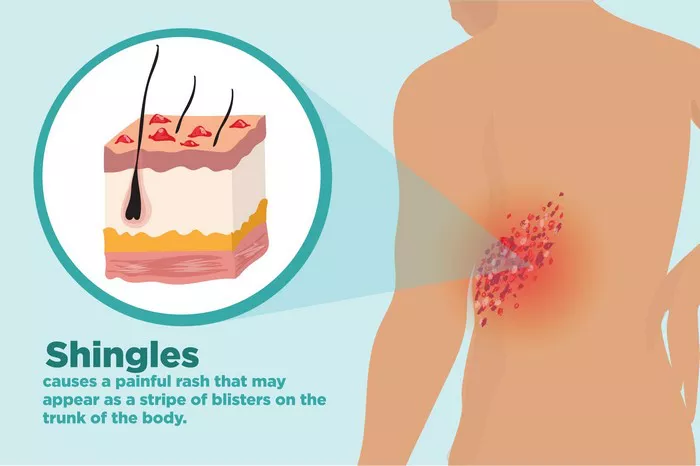Ringworm is a common fungal infection that affects the skin, hair, and nails. It can cause red, itchy, circular rashes that can spread to different parts of the body. While ringworm is caused by fungi called dermatophytes, its development can be influenced by various factors. One such factor is stress. But how exactly does stress play a role in causing ringworm? In this article, we will explore how stress can contribute to the development of ringworm, its symptoms, and how you can manage both stress and skin health.
What is Ringworm?
Before diving into how stress affects ringworm, it’s important to understand what ringworm is. Despite its name, ringworm is not caused by a worm. It is a fungal infection that occurs when certain types of fungi infect the skin. These fungi thrive in warm, moist environments like locker rooms, swimming pools, and areas with poor hygiene.
The name “ringworm” comes from the appearance of the rash, which is often circular, with raised, red edges and a clear center. Common areas where ringworm can appear include the scalp, feet (athlete’s foot), groin (jock itch), and body. Although it can affect anyone, ringworm is more common in people who are exposed to moist environments or have weakened immune systems.
Understanding Stress and Its Effects on the Body
Stress is the body’s natural response to challenging or threatening situations. When you are stressed, your body releases hormones like cortisol, adrenaline, and norepinephrine. These hormones help the body react to immediate threats, a process known as the “fight-or-flight” response.
While this reaction is beneficial in short bursts, prolonged or chronic stress can have harmful effects on your body, including your skin. Under chronic stress, the body remains in a heightened state of alert, which can lead to various physical and emotional health problems. These include weakened immune function, increased inflammation, and changes in skin conditions. The relationship between stress and skin health is complex and multifactorial, involving changes in hormone levels, immune system response, and skin barrier function.
Stress and the Immune System
One of the key ways stress can influence ringworm is by affecting the immune system. The immune system is responsible for protecting the body against infections, including fungal infections like ringworm. However, chronic stress can weaken the immune system, making it less effective at fighting off harmful pathogens.
When you are under stress, your body produces more cortisol, a hormone that helps regulate the immune response. While cortisol is helpful in managing short-term stress, too much cortisol over time can suppress the immune system’s ability to function properly. A weakened immune system is less able to prevent fungal infections like ringworm from taking hold.
Furthermore, stress can cause an imbalance in other hormones that play a role in immune regulation. This imbalance can make your body more vulnerable to infections, including fungal infections.
Stress and Skin Barrier Function
The skin serves as the body’s first line of defense against external threats, such as bacteria, viruses, and fungi. A healthy skin barrier prevents harmful microorganisms from entering the body. However, stress can disrupt the skin’s protective barrier.
When you experience stress, your body produces more of the stress hormone cortisol. Elevated cortisol levels can weaken the skin’s ability to retain moisture and produce natural oils. This leads to dry, cracked skin that is more susceptible to infections, including fungal ones like ringworm.
Additionally, stress can trigger inflammation in the skin. Inflammation weakens the skin barrier, making it easier for fungi and other pathogens to penetrate and cause infections. The compromised skin barrier caused by stress can create an environment where ringworm can thrive.
How Stress Increases the Risk of Fungal Infections
Fungal infections like ringworm need certain conditions to grow and spread. These conditions include warmth, moisture, and a weakened immune system. Stress can create a combination of factors that increase the risk of developing ringworm:
Weakened Immune System: As mentioned earlier, stress can suppress the immune system, making it harder for your body to fight off fungal infections.
Increased Inflammation: Chronic stress can lead to inflammation in the body, including the skin. This inflammation can damage the skin’s protective barrier, allowing fungi to penetrate more easily.
Hormonal Changes: Stress affects hormone levels in the body, which can alter skin function. For example, higher levels of cortisol can make the skin more prone to dryness, irritation, and infection.
Changes in Lifestyle: Stress can lead to unhealthy habits, such as poor hygiene, lack of sleep, and a poor diet. These factors can also increase the risk of fungal infections like ringworm.
Sweating: Stress often leads to increased sweating, particularly in areas like the feet and groin. Sweat can create a damp environment, which is ideal for fungi to grow. This is why stress-related sweating can increase the likelihood of developing ringworm, especially in areas like the feet (athlete’s foot) or groin (jock itch).
Stress and Preexisting Skin Conditions
For individuals who already suffer from skin conditions such as eczema, psoriasis, or acne, stress can make these conditions worse. A compromised skin barrier is already present in these conditions, and stress can worsen the situation. This makes it easier for fungi like dermatophytes to infect the skin.
In people with conditions like eczema, stress can cause flare-ups that leave the skin more vulnerable to fungal infections like ringworm. Similarly, psoriasis can cause scaly, broken skin, which provides an opening for fungi to enter and cause infection.
Symptoms of Ringworm
When stress contributes to ringworm, the symptoms may be similar to those of a typical fungal infection. These symptoms include:
Red, circular rash: The most common sign of ringworm is a round, red rash with raised edges. The center of the rash may appear clearer, resembling a ring.
Itching: The infected area may itch, causing discomfort.
Scaling: The rash may be scaly or flaky, which is a sign of fungal activity.
Blistering: In some cases, blisters may develop in the affected area.
Hair Loss: If ringworm affects the scalp, it can cause hair loss in the infected area.
Managing Stress to Prevent Ringworm
While stress can increase the risk of ringworm, there are several ways to manage stress and improve skin health:
Relaxation Techniques: Practices like yoga, meditation, deep breathing, and mindfulness can help reduce stress and promote relaxation. These techniques help lower cortisol levels and improve overall well-being.
Regular Exercise: Physical activity is one of the most effective ways to manage stress. Exercise releases endorphins, which are natural mood boosters that can help alleviate stress.
Healthy Diet: Eating a balanced diet with plenty of fruits, vegetables, and whole grains can help boost your immune system. Avoiding processed foods and sugary snacks is also important for maintaining good skin health.
Adequate Sleep: Getting enough sleep is essential for stress management and skin health. Sleep helps your body repair and rejuvenate, including repairing the skin barrier.
Good Hygiene Practices: Regularly washing your hands, showering after exercise, and keeping your skin clean and dry can help reduce the risk of fungal infections. Pay special attention to areas prone to sweating, like your feet and groin.
Skin Care: Use moisturizers and gentle cleansers to keep your skin hydrated and healthy. Avoid using harsh soaps that can strip the skin of its natural oils, especially if you are stressed and your skin is already vulnerable.
Seek Professional Help: If stress is overwhelming or persistent, consider speaking with a mental health professional. Therapy or counseling can help you manage stress and develop healthier coping mechanisms.
Conclusion
Stress can indeed contribute to the development of ringworm, mainly by weakening the immune system, compromising the skin barrier, and increasing inflammation. While stress alone does not directly cause ringworm, it can create an environment where the fungus is more likely to take hold. By managing stress, maintaining good hygiene, and caring for your skin, you can reduce your risk of developing ringworm and other skin infections. If you suspect you have ringworm, it is important to seek treatment early to prevent it from spreading and causing further complications.
Related topics:

























